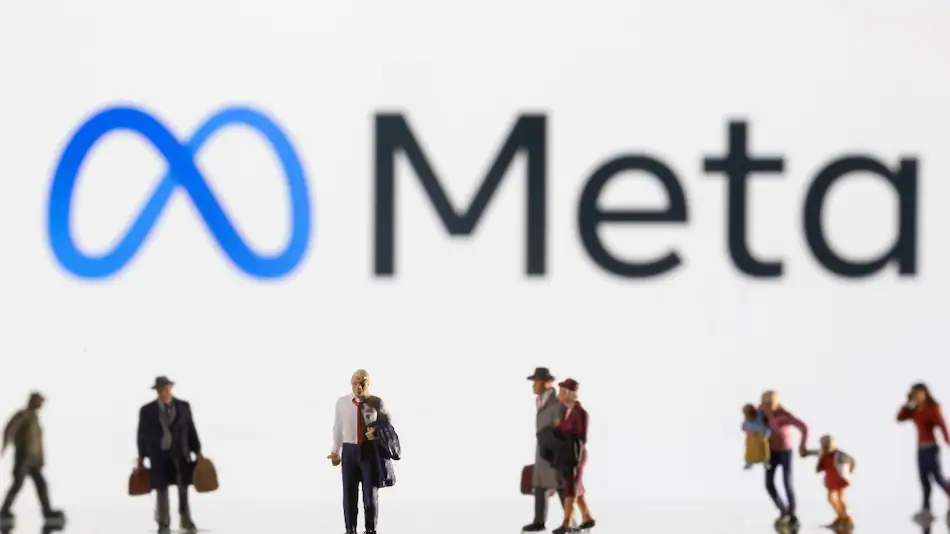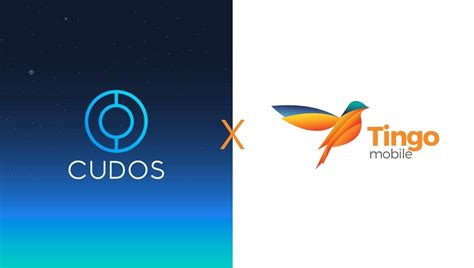How Crevatal is simplifying blockchain technology
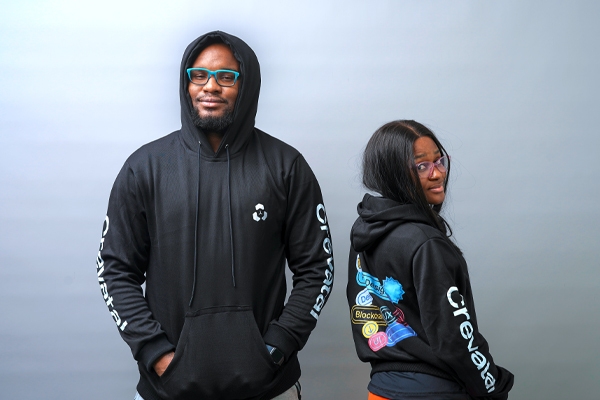
One of the main reasons why most individuals avoid using blockchain or crypto platforms is because of the intricacies involved. Many people who have sought my assistance in starting their crypto adventure are put off by the complicated-looking platforms.
While data from Chainalysis suggests that crypto use is fast expanding, studies from Triple A, a startup that lets companies accept cryptocurrency payments, reveal that cryptocurrency users globally account for only a small percentage of the world’s population.
According to Triple A, the worldwide crypto ownership rate is expected to be 3.9 percent in 2021, with 300 million — 4.285 percent of the global population — crypto owners.
Oluchi Enebeli and Clement Hugbo, Co-founders of Crevatal, are combining years of experience in the blockchain space to simplify blockchain and foster mainstream adoption.
Why is blockchain so complex?
Blockchain is widely regarded as one of the technologies that will usher in the fourth industrial revolution. However, it is still a concept that most people struggle to grasp. The technology, in and of itself, is a way of storage that allows access to saved information while also providing high-level security through decentralisation.
It stores information in numerous locations at the same time, and these various locations constitute a network. Changes become difficult since they must be done concurrently across all points when the information is kept in distinct regions.
Although the technology in its most basic form is simply a clever means to store information, it has recently expanded to show other capabilities, particularly in the areas of finance (cryptocurrency) and, more widely, Web3.
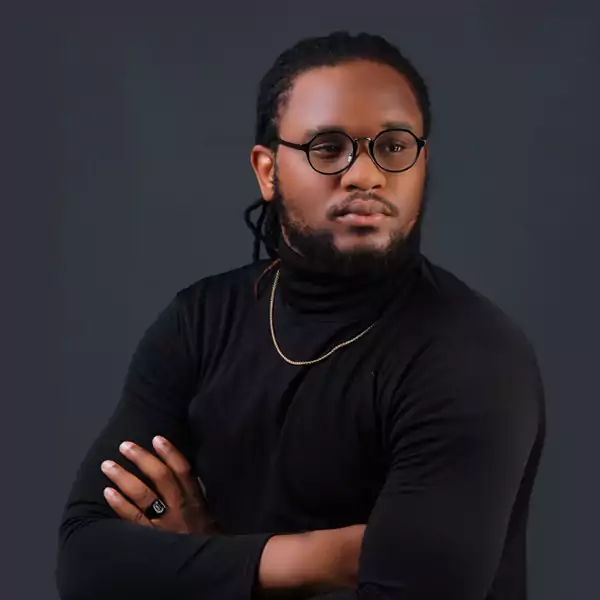
Hugbo feels that the lack of attention to a fundamental component – design — is the reason why this innovative technology remains difficult for many to utilize.
“For any new technology that enters the tech ecosystem, one of the first individuals that the ecosystem looks to for growth is the developers and programmers.”
“Designers are sometimes less valued when it comes to creating products.”
He adds that while their importance is relatively well understood in the tech ecosystem, design needs more attention when it comes to new tech like blockchain.

Enebeli’s opinion on why blockchain is hard to use leans towards Hugbo’s. As a blockchain engineer, she admits that the tech is quite complex. “It’s a whole new ballgame,” she said.
And being different from what everyone else is used to makes it even more difficult.
As a blockchain developer, she understands the thrill of creating new things while ignoring the ease with which they can be used.
“Because it’s a maturing technology, the majority of folks in the sector are developers.”
Crevatal’s strategy for making blockchain more accessible
Crevatal is a business that specializes in designing user experiences (UX) for blockchain and, more specifically, Web3 technologies. Although the company began by doing other things, such as backend engineering, smart contract integration, and tokenization, it has decided to focus on design, which it believes is a critical component of blockchain adoption.
Crevatal believes firmly in the importance of creativity in technology. Crevatal is, in reality, a mix of the words creativity and vitality.
Crevatal, which was founded in late 2019, aspires to be Africa’s most renowned blockchain design firm. It began fully pursuing this goal in 2020, when Enebeli, a blockchain engineer since 2016, joined the team.
She has previously worked with global blockchain firms such as Binance, Crypto.com, and Bundle. Hugbo has years of experience in the blockchain space as well, and the duo is combining their skills and expertise to offer blockchain simplicity one product at a time.
Using Web2 talents to build Web3 products
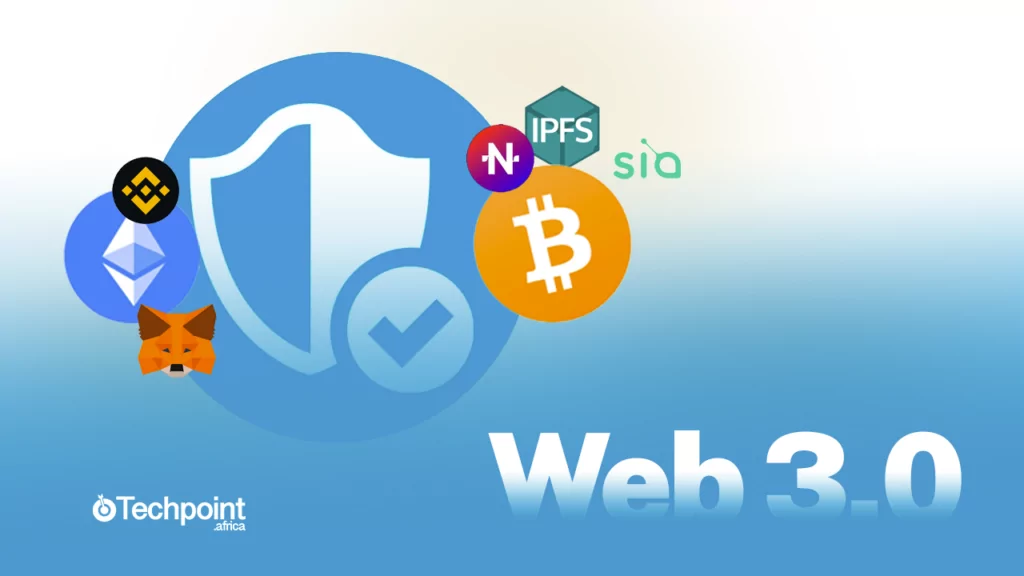
In general, computer expertise in Africa is limited, but obtaining blockchain skill is much more difficult.
Crevatal, on the other hand, does not actively seek ready-made blockchain talent, thus this is not a concern. They’re going a route that I find tedious: recruiting Web2 talent and developing them to be blockchain and Web3 experts.
Aside: Web2 talents are IT professionals who create Internet-based goods for the current Internet iteration. Web3 talents, on the other hand, create blockchain-based decentralized products.
Aside from the co-founders, the majority of the staff members are new to blockchain or Web3. The plan is to integrate them into the team by teaching them on the job.
“One of the best ways to learn is via service, and it is through service that you begin to learn passively.” We train and teach new members who join, and we hold knowledge-sharing sessions in which we share our expertise of blockchain technology.
They begin to pick things up during this phase. “Understanding the complexities of blockchain and how they interact with one another,” Ugbo said.
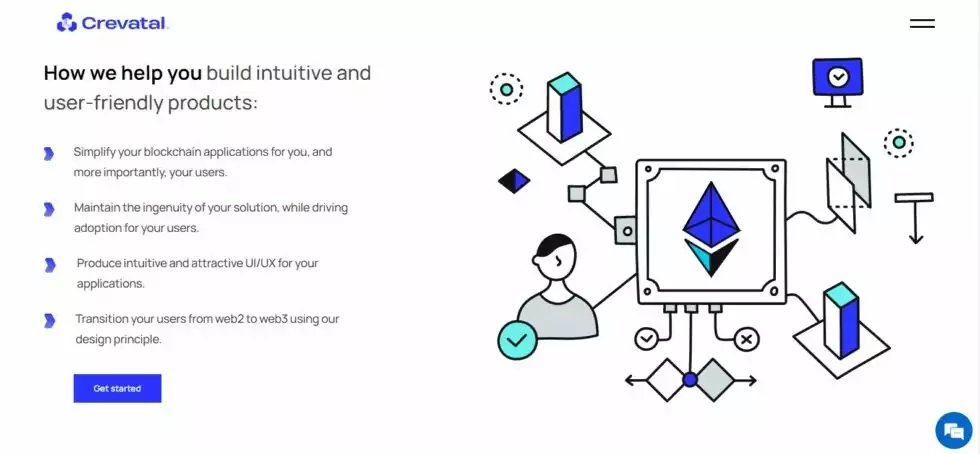
Interestingly, the lack of Web3 and blockchain talent isn’t the only reason Crevatal has decided to teach its own employees. When creating blockchain platforms, Enebeli believes it is critical to have a fresh set of eyes.
You become so accustomed to it that you no longer perceive it as a newcomer would.
“For example, those who have utilized decentralized finance (DeFi) platforms aren’t bothered by it since they’ve grown accustomed to it.” That’s one of the reasons we want Web2 designers on the team; we want to view things through their perspective.”
Using Noshify to combine cryptocurrency with food
While Crevatal is dedicated to assisting companies and Web3 communities in developing platforms with simple UX design, it is also developing its own platforms, one of which is Noshify.
Noshify is a platform that combines the most improbable of ingredients: bitcoin and cuisine. It is a platform that connects independent food vendors with clients who can pay with cryptocurrencies.
Crevatal believes that adopting bitcoins for purposes other than trading acquaints individuals with them.
The desire to construct simple platforms stems from Enebeli and Ugo’s enthusiasm for blockchain. They believe it is a technology that has the potential to revolutionize Africa and bring true financial freedom.
While various considerations, other than simplicity, work against the usage of blockchain, it is a fantastic place to start.


